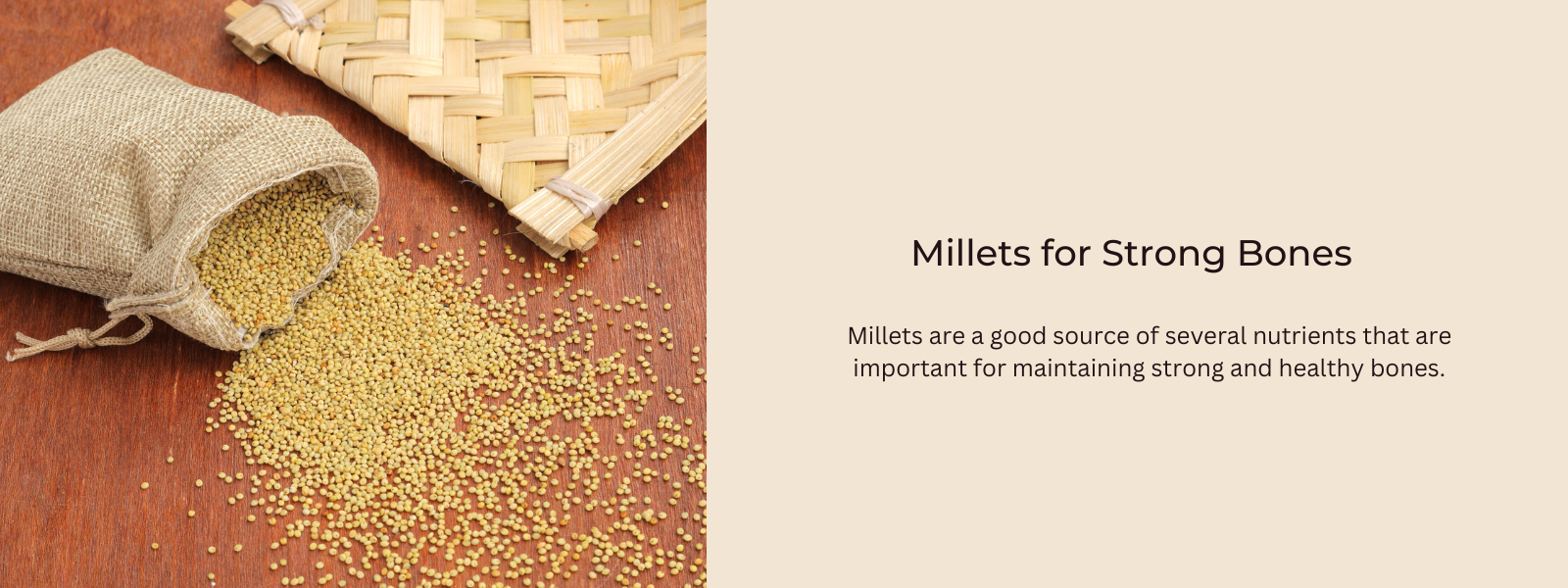Millets, as nutrient-rich whole grains, serve as potent brain boosters and can significantly impact cognitive health. Packed with essential vitamins, minerals, and dietary fiber, millets provide the brain with the necessary nutrients for optimal function. Their low glycemic index ensures a steady supply of energy, reducing cognitive fatigue, while the presence of antioxidants safeguards against oxidative stress, lowering the risk of age-related cognitive decline. Additionally, being gluten-free, millets are an ideal choice for those with gluten sensitivities. Incorporating millets into your diet is a valuable strategy to support cognitive health, complemented by mental stimulation, regular physical activity, and stress management for overall well-being.
Table of Contents
Millets For Sharp Mind And Better Cognitive Health:
Millets can serve as brain boosters and positively impact cognitive health in several ways:
- Nutrient-Rich: Millets are a good source of essential nutrients such as vitamins, minerals, and dietary fiber. These nutrients play a key role in maintaining brain health and cognitive function. For example, B vitamins found in millets, including folate and niacin, support brain function.
- Steady Energy: Millets have a low glycemic index, which means they release energy slowly, helping to maintain steady blood sugar levels. This can prevent energy crashes that can negatively impact cognitive performance.
- Antioxidants: Millets contain antioxidants, which protect the brain from oxidative stress and reduce the risk of neurodegenerative diseases associated with aging.
- Whole Grains: Millets are whole grains, and consuming whole grains has been linked to improved cognitive function and a reduced risk of cognitive decline.
- Dietary Fiber: The dietary fiber in millets supports healthy digestion, which is closely linked to brain health. A healthy gut is associated with better cognitive function.
-
Gluten-Free Option: Millets are naturally gluten-free, making them a suitable choice for individuals with gluten sensitivities, including those with celiac disease. Gluten sensitivity can sometimes affect cognitive function.
What Is The Right Age To Introduce Millets To Babies?
Millets are usually introduced to babies when they are around 6 to 8 months old. Start with a single-grain millet cereal or puree and gradually progress to more complex millet dishes as your baby gets older and more accustomed to solid foods. Initially, millets should be prepared as a smooth and easily digestible puree, gradually transitioning to a thicker consistency as your baby becomes more comfortable with solids.
Importance Of Millets For Growing Children:
Millets hold significant importance for growing children's nutrition and overall well-being. Packed with essential vitamins, minerals, and dietary fiber, millets offer a nutrient-rich source of energy, supporting children's growth and development. Their low glycemic index provides a sustained release of energy, stabilizing blood sugar levels and promoting lasting satiety, ideal for active kids. Millets are also a moderate source of protein, essential for muscle development and overall health. Additionally, being naturally gluten-free, millets are a safe and nutritious choice for children with gluten sensitivities, offering dietary diversity while promoting digestion and preventing constipation. The versatility of millets in various dishes ensures a balanced and diverse diet for growing children, making them a valuable addition to their nutritional intake.
Importance Of Millets For Athletes:
Millets hold notable importance for athletes in their quest for optimal performance and recovery. These grains offer a unique combination of complex carbohydrates for sustained energy release and essential nutrients like iron, magnesium, and B vitamins, which support muscle function, oxygen transport, and energy metabolism. Millets' moderate protein content aids in muscle recovery and repair, essential for athletes' rigorous training routines. The low glycemic index of millets provides steady energy levels, helping athletes avoid energy crashes during workouts. Furthermore, millets are a gluten-free option, suitable for athletes with gluten sensitivities. Their versatility allows athletes to incorporate them into various meals, providing a well-rounded and nutritious diet that is crucial for their training, endurance, and overall health.
How Often Can You Have Millets?
The frequency of consuming millets can be a flexible and beneficial part of a balanced diet. For those who enjoy millets and wish to incorporate them regularly, they can be included in meals several times a week, offering their nutritional benefits and dietary diversity. However, it's equally important to maintain a varied diet by including other grains, vegetables, fruits, and protein sources to ensure a well-rounded nutritional intake. The ideal frequency of millet consumption may also depend on individual dietary preferences, nutritional needs, and any specific health considerations. Consulting with a healthcare professional or dietitian can help determine the most suitable frequency and quantity of millet consumption for your unique dietary goals and well-being.








Leave a comment